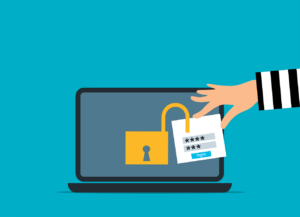

Here are some email security tips that everyone can follow to enhance their email security:
1. Use strong, unique passwords: Choose passwords that are complex, with a combination of letters (uppercase and lowercase), numbers, and special characters. Avoid using easily guessable information, such as your name or birthdate. Additionally, use different passwords for different accounts to minimize the impact of a potential breach.
2. Enable two-factor authentication (2FA): Two-factor authentication adds an extra layer of security to your email account by requiring a second form of verification, such as a unique code sent to your phone or a biometric scan. Enable 2FA whenever possible to prevent unauthorized access.
3. Be cautious with email attachments and links: Do not open email attachments or click on links unless you are certain they are from a trusted source. Be particularly vigilant with attachments that come from unknown or suspicious senders, as they could contain malware or phishing attempts. “When in doubt, don’t open it!”
4. Beware of phishing attempts: Phishing emails often appear to be legitimate but aim to trick you into revealing sensitive information or login credentials. Look out for suspicious emails requesting personal information or login details, and verify the sender’s identity before sharing any sensitive data. ***Use personal UPS story***
5. Check email sender details: Scammers can forge the sender’s email address to make it appear as if it’s from a reputable source. Double-check the email address and look for any anomalies or misspellings that could indicate a fraudulent message.
6. Avoid sharing sensitive information via email: Email is not a secure medium for sharing sensitive data such as passwords, financial information, or personal identification details. Whenever possible, use secure file transfer protocols or encrypted messaging services for such exchanges.
7. Keep your software up to date: Regularly update your email client, web browser, and other software to ensure you have the latest security patches. Outdated software can be vulnerable to various cyber threats.
8. Be cautious with public Wi-Fi: Avoid accessing your email or entering login credentials on public Wi-Fi networks, as they can be unsecured and easily intercepted by hackers. If necessary, use a VPN (Virtual Private Network) for a secure connection.
9. Use email encryption: Consider using email encryption tools or services that encrypt the content of your emails, protecting them from unauthorized access. Encryption adds an extra layer of security, especially when sending sensitive or confidential information.
10. Report suspicious emails: If you receive a suspicious email, report it to your IT or security team immediately. They can investigate the issue, take necessary actions, and inform others to prevent potential security incidents.
Remember, email security is a shared responsibility, and each person plays a crucial role in maintaining a secure environment. Regular training and awareness programs can help reinforce these practices and foster a security-conscious culture within each organization.
If you have any further questions, reach out to us by email at [email protected].